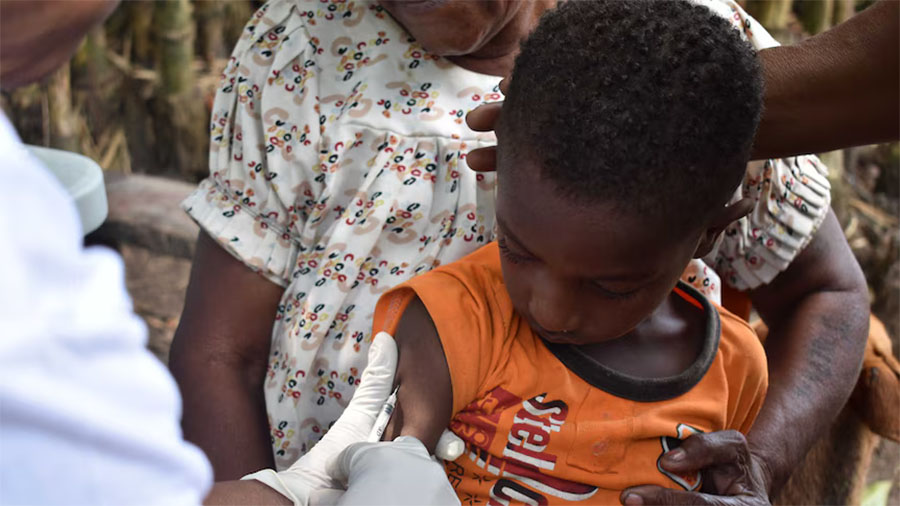
Photo Credit: Getty Images
A polio outbreak has been declared in Papua New Guinea by the World Health Organisation (WHO), prompting a call for an "immediate" vaccination campaign. The WHO has declared the deadly disease a level that is a high risk for citizens.
"We have to do something about it and we have to do it immediately," said Sevil Huseynova, WHO's representative in Papua New Guinea, warning that the disease could spread beyond the country.
"We have to make maximum effort to get 100% vaccination coverage," Dr Huseynova said at a media conference on Thursday.
The disease is caused by the poliovirus, which spreads through contact with an infected person's faeces or droplets when they cough and sneeze. It mostly affects children under five years old.
There is no cure for polio, although the majority of people with the infection - including the two recent cases in Papua New Guinea - have no symptoms. Those who do may get a flu-like illness.
A small number of people infected with polio - between one in a thousand and one in a hundred - develop more serious problems that can lead to paralysis. This is also when the disease becomes life-threatening, particularly when paralysis affects muscles used for breathing.
Papua New Guinea was said to be polio-free since 2000, until an outbreak in 2018, which was contained within the same year.
The latest cases were found to be carrying a virus strain genetically linked to one circulating in Indonesia. Papua New Guinea shares a border with Indonesia's easternmost Papua province.
Health Minister Elias Kapavore has vowed to achieve 100% polio immunisation in the country by the end of this year.
The ongoing campaign will target children aged 10 and below and is expected to reach around 3.5 million people.
The WHO, UN's children agency Unicef and Australia's government are supporting Papua New Guinea in its rollout of vaccines.
The WHO has also warned of an outbreak in war-torn Gaza after traces of the virus were found in wastewater.
















